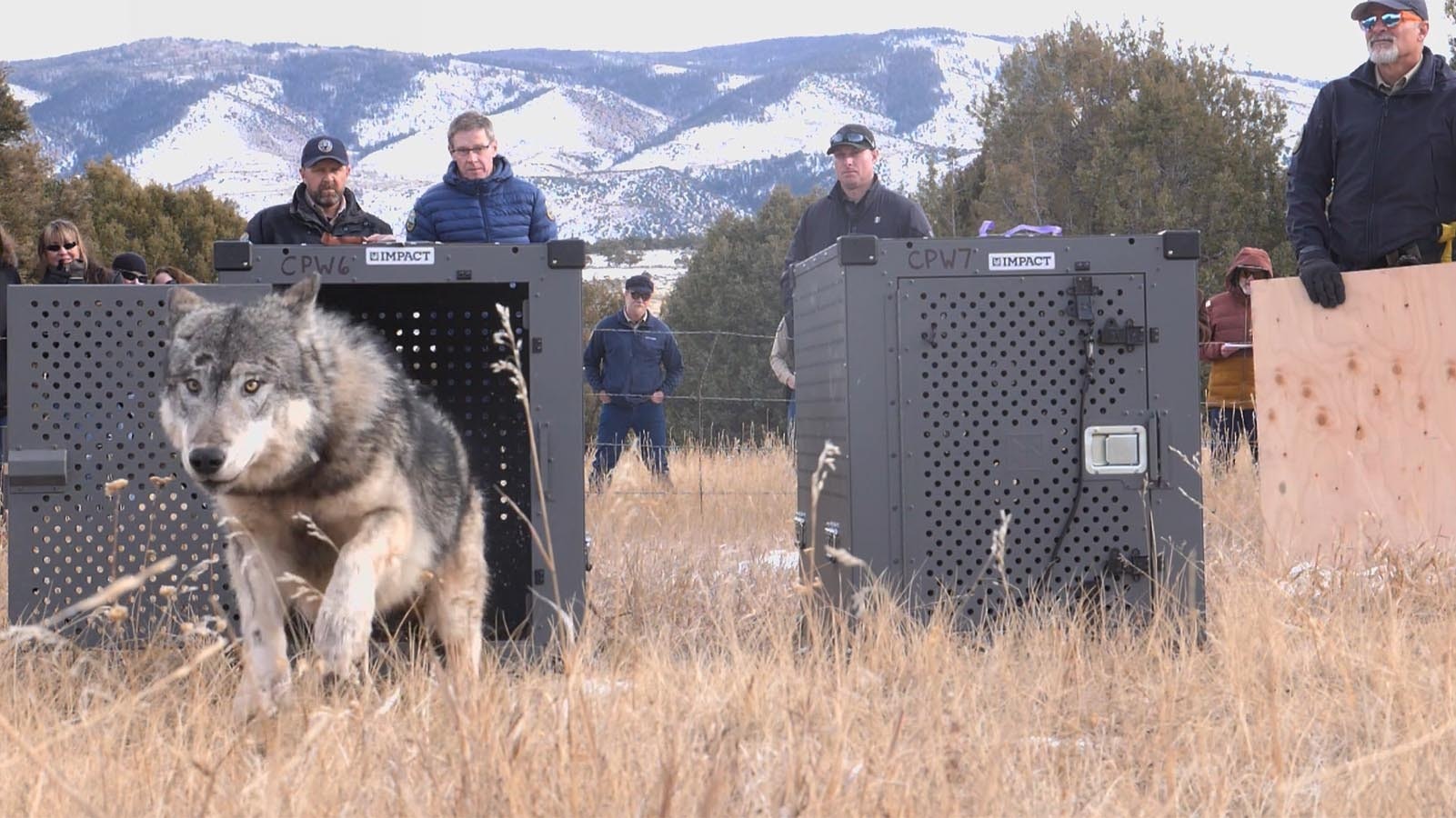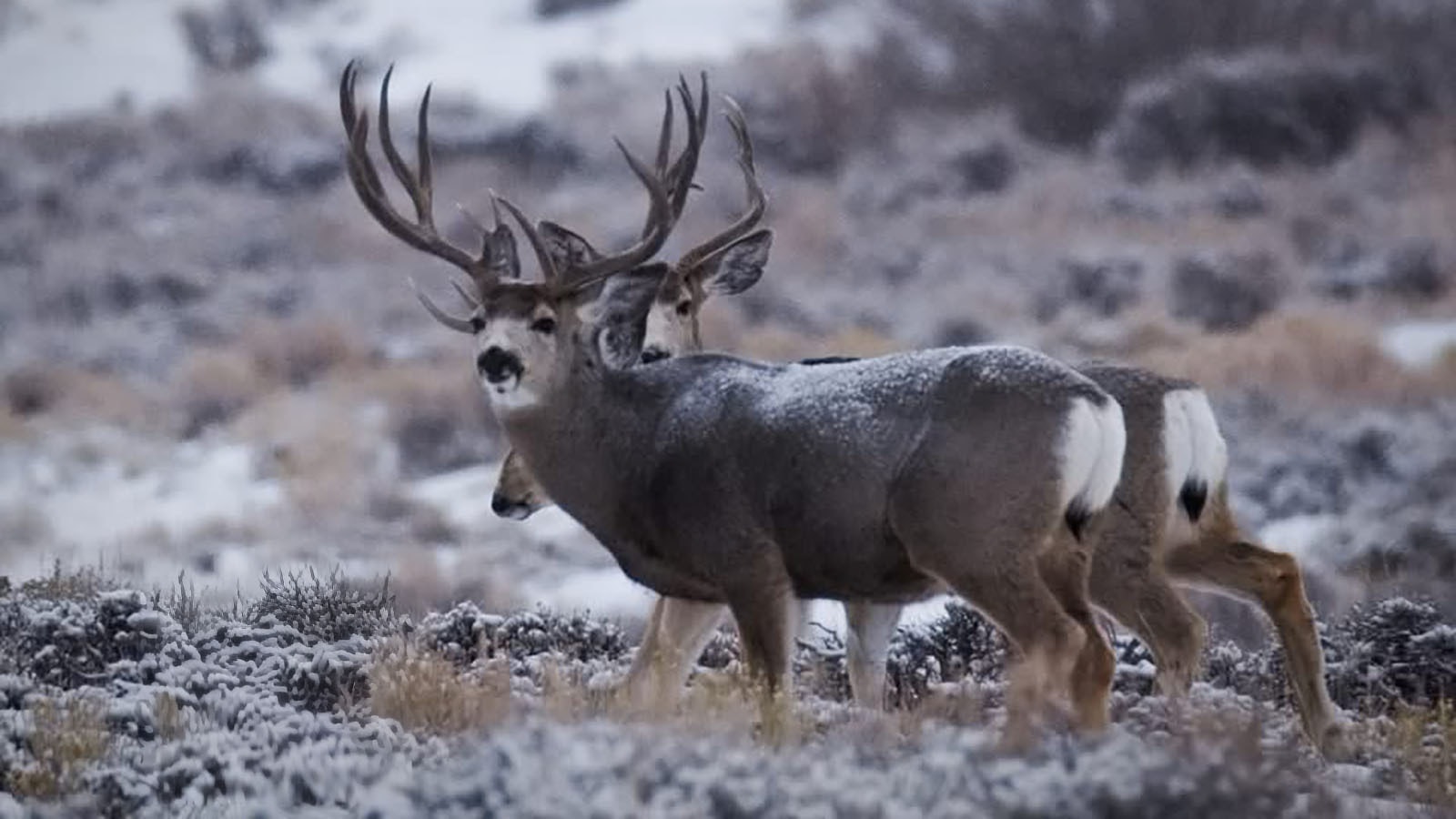Colorado’s ongoing wolf reintroduction program is facing new wrinkles, with lingering accusations that Oregon wolves infected with a parasitic disease were released in the state.
However, the Colorado Department of Parks and Wildlife (CPW) claims that Hydatid disease was already present in Colorado. Wolves brought in from Oregon, and later British Columbia, were treated for that and a number of other diseases before being released.
If wolves were, in fact, infected with the disease after being in Colorado, it is possible they contracted it from prey animals they consumed, according to CPW.
Hydatid disease is a type of Echinococcus and is spread through tapeworm eggs in feces, such as wolf scat.
It can infect canine species, as well as prey animals and livestock. Human cases are rare, but people can contract the disease through contaminated drinking water, by eating infected soil lingering on vegetables or berries, or through close contact with infected dogs.
The disease can cause cysts on major organs and, in some cases, can be fatal.
Where Did It Come From?
Denny Behrens, who has helped track Hydatid disease in Colorado, said the origins of the disease in the state are murky.
It may have come from wolves that crossed into Colorado from Wyoming in 2020, he said.
Those wolves, in turn, might have been carrying generational infections dating back to the reintroduction of wolves from Canada into Yellowstone National Park and remote areas of Idaho between 1995 and 1996, he added.
He thinks more should be done to track the disease in wolves not only in Colorado, but throughout the Lower 48.
“It’s not right. It’s not right to let that disease stay out there, and let those wolves propagate and spread it,” he said.
2024 Case and Lingering Accusations
Behrens said that in 2024 he helped collect wolf scat samples from a ranch in Grand County, Colorado, and also conducted interviews with the ranchers.
Those samples came from wolves reintroduced to Colorado from Oregon in December 2023 and were sent for testing to a veterinary laboratory in Kansas.
According to a report from the Kansas State Veterinary Diagnostic Laboratory, scat samples from two wolves tested positive for the disease.
Concern over the disease, and wolves as a primary vector for it, continues in Colorado, Behrens said.
In a recent statement, Hope Scheppelman, the former vice chairwoman of the Colorado Republican Party and candidate for Colorado’s 3rd Congressional District, claimed the Oregon wolves brought the disease with them.
She stated that might constitute a violation of the federal Lacey Act.
“The findings also raise questions about whether Colorado’s wolf introduction program violates the Lacey Act — a federal law designed to prevent the transport of wildlife known to carry dangerous diseases such as rabies, distemper, and Hydatid tapeworms,” Scheppelman said.
CPW: We Control For Disease
Colorado’s wolf reintroductions began with the release of 10 wolves from Oregon in December 2023. Another 15 were brought from British Columbia, Canada, and released in January.
CPW follows strict disease testing and treatment protocols before releasing wolves, agency spokesman Luke Perkins told Cowboy State Daily.
They are given a wide range of vaccines and treatments, including Praziquantel injections for hydatid tapeworms and similar parasites, according to CPW.
As for claims that the program violates the Lacey Act, that is not true, Perkins stated in a follow-up email to Cowboy State Daily.
“All wolf translocation efforts were conducted under approved permitting requirements that satisfied all applicable laws,” he said.
Hydatid disease has been documented in wild canines in states neighboring Colorado, including Wyoming, according to CPW.
Hydatid disease has previously been detected in other species in Colorado, such as a moose in 2017, Perkins added.
The Reintroductions Will Continue
CPW will proceed with wolf reintroductions, Perkins said.
The current plan is to release another 15 wolves this winter, although it is not yet certain where they will come from, he said.
With a recent cut to the program’s budget, additional funding is also being sought, he added.
During a special session in August convened to deal with a billion-dollar revenue shortfall, the Colorado Legislature rejected a proposal to pause the state’s wolf reintroduction program.
However, lawmakers agreed to redirect $264,268 from the state’s general fund, which was initially earmarked for the wolf reintroduction program. That money was instead allocated to help subsidize the state’s health coverage costs.
Meanwhile, Behrens said he thinks the federal government should be responsible for the aggressive tracking and containment of Hydatid disease in wolves.
If ignored and left unchecked, the disease could spread to big game herds, cattle, and even people, he said.
“If a wolf defecates on the grass and it rains, and a cow comes along and eats it, that’s not any different than an elk or a moose eating it,” he said.
Mark Heinz can be reached at mark@cowboystatedaily.com.





